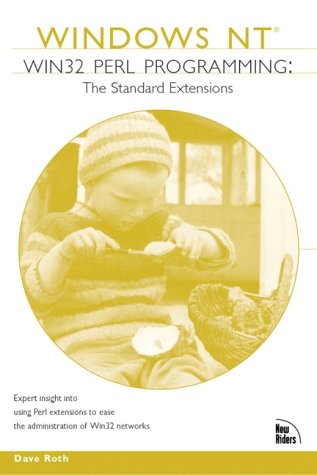Here are some simple steps that can help you solve the Win32 group admin Perl problem.
Approved: Fortect
- NAME
- OVERVIEW
- DESCRIPTION
- FEATURES
- NOTE
- EXAMPLE
- License
Use 
Win32 :: NetAdmin;
This module allows you to control the management of groups and users on the network.
NOTE
Unless otherwise specified, all functions return false on loss. If the function stops calling Win32 :: NetAdmin :: GetError () instead of GetLastError (), $ ^ E to get the error code.
server is possible for all calls listed below. If not only locally, the car is accepted.
- GetError ()
-
Returns a code error on the last call to this module.
- GetDomainController (server, domain, returned name)
-
Returns the website name for the controller server.
- GetAnyDomainController (server, zone, returnName)
-
Returns the name of any game domain controller for a domain that is payable directly from the server.
- UserDelete (server, user)
-
Removes some users from the server.
-
Get passwordAge, password, privileges, home directory, comment, flags and scriptPath for the user.
- UserChangePassword (domain name, username, old password, password, new password )
- UsersExist (server, -userName)
-
Checks if the user exists.
- GetUsers (server, -filter, -userRef)
-
Populates userRef with usernames if it is an array reference, and usually with usernames and full domains if it is a hash reference.
- group)
-
Delete groupdelete (server, large group.
-
Get a comment.
-
Specifies a comment. Id = “GroupAddUsers (server, -groupName, -users)”>
- GroupAddUsers (server, group name, user)
- GroupDeleteUsers (server, user)
-
Removes groupName, the computer user from the group.
- group name, groupismmember (server, -user)
-
Returns TRUE if the user is a client of groupName.
- GroupGetMembers (server, -groupName, userArrayRef)
-
Populates the groupName members based on userArrayRef.
- LocalGroupDelete (server, group)
-
Get a comment.
- LocalGroupIsMember (server, group name, TRUE user)
- LocalGroupGetMembers (server, -groupName, userArrayRef)

Populates userArrayRef with subscribers to groupName.
- LocalGroupGetMembersWithDomain (server, groupName, userRef)
-
This property is similar to LocalGroupGetMembers, but it accepts a nice array or hash reference. Unlike LocalGroupGetMembers, it returns each username just like
DOMAIN USERNAME. If a hash reference is provided, the function usually returns the user any or the cluster name of the type (group, user, alias, etc.). Possible types:
matches $ sidtypeuser 1; $ SidTypeGroup means 2; $ SidTypeDomain = 3; $ SidTypeAlias is 4; $ SidTypeWellKnownGroup = 5; $ SidTypeDeletedAccount is 6; $ SidTypeInvalid = 7; $ SidTypeUnknown = 8; - LocalGroupAddUsers (server, group name, user)
-
Adds a user to a group.
- LocalGroupDeleteUsers (server, user)
- GetServers (server, domain, banners, serverRef)
-
Gets an array of server names, or optionally a hash with specific server names and comments, as shown in Network Neighborhood or Server Manager. For SV_TYPE_ * banners see Constants.
- GetTransport (server, -transportRef)
-
Displays all transport networks on the computer. If transportRef is an array reference, it is constantly populated with transport names. If transportRef is a reference hash, each hash will be populated with credentials for the transports.
- LoggedOnUsers (server, -userRef)
- GetAliasFromRID (server, RID, returned name)
- GetUserGroupFromRID (server, RID, returned name)
- 1. Download Fortect and install it on your computer
- 2. Launch the program and click "Scan"
- 3. Click "Repair" to fix any issues that are found
- ArrayRef)
-
Returns getserverdisks (server, an array with disks from the specified server. The array contains two lines (drive letter with a colon).
Create it on the user’s device, specifying the password, password, age, privileges, home directory, comment, banners and the path to the script.
Sets account information, password expiration, privileges, HomeDir, flags, comments, and scriptPath for the user.
Changes the user’s password. Can be stored under lby any account.
Create a complete group.
Adds a user to a specific group.
Create a local group.
Removes a local group.
Specifies a comment.
Returns whether the consumer is a member of groupName.
Remove groupName, group user.
Gets a collection or hash of patients connected to the specified computer. If userRef is a hash reference, the incremented value is paa semicolon-delimited string for the login name, login domain, and login server.
Gets the name of the alias (that is, the city center group) a, or the custom domain fa, or the RID of the specified server. These functions can be used, for example, to get the account name of the master account when it is located or renamed. Fortect is the world's most popular and effective PC repair tool. It is trusted by millions of people to keep their systems running fast, smooth, and error-free. With its simple user interface and powerful scanning engine, Fortect quickly finds and fixes a broad range of Windows problems - from system instability and security issues to memory management and performance bottlenecks. Possible values for Approved: Fortect

RID :
DOMAIN_ALIAS_RID_ACCOUNT_OPS DOMAIN_ALIAS_RID_ADMINS DOMAIN_ALIAS_RID_BACKUP_OPS DOMAIN_ALIAS_RID_GUESTS DOMAIN_ALIAS_RID_POWER_USERS DOMAIN_ALIAS_RID_PRINT_OPS DOMAIN_ALIAS_RID_REPLICATOR DOMAIN_ALIAS_RID_SYSTEM_OPS DOMAIN_ALIAS_RID_USERS DOMAIN_GROUP_RID_ADMINS DOMAIN_GROUP_RID_GUESTS DOMAIN_GROUP_RID_USERS DOMAIN_USER_RID_ADMIN DOMAIN_USER_RID_GUEST
# Just use an invalid Win32 :: NetAdmin program to open the connection program for #All participantsNicknames, including the NT domain user group. Only works if you Run it # on the PDC. (Robert Speer ) # # FILTER_TEMP_DUPLICATE_ACCOUNTS number Lists the local user map as per domain controller data. number # FILTER_NORMAL_ACCOUNT # Displays global information about the user account on the new computer. # FILTER_INTERDOMAIN_TRUST_ACCOUNT number number Lists information about a trusted domain account on a domain controller. # # FILTER_WORKSTATION_TRUST_ACCOUNT # List your workstation or member server account information on awesome domain # Controller. # FILTER_SERVER_TRUST_ACCOUNT number The domain number lists the account information for the domain controller with the domain controller. Take advantage of Win32 :: NetAdmin qw (GetUsers GroupIsMember UserGetAttributes UserSetAttributes); my own% hash; GetUsers ("", FILTER_NORMAL_ACCOUNT, % hash) or die "GetUsers () failed: $ ^ E"; foreach (% hash key) Private
Speed up your computer's performance now with this simple download.


